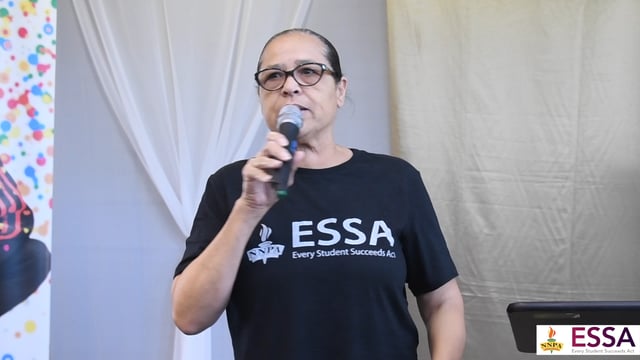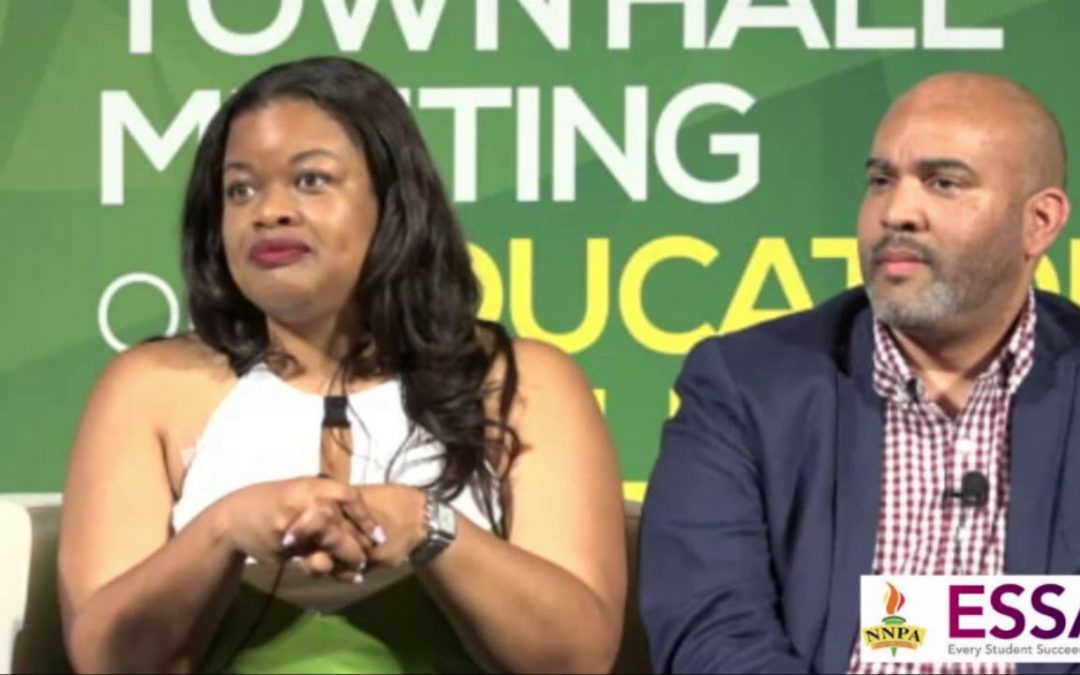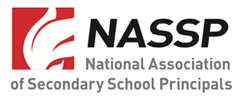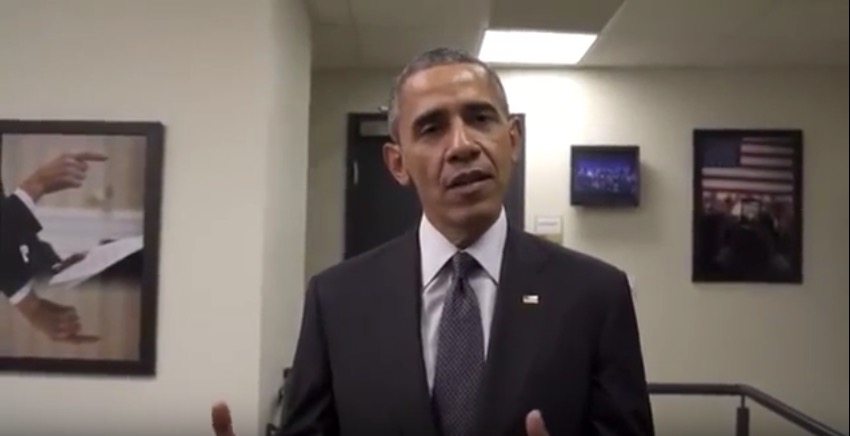


VIDEO: National Black Parents Town Hall Meeting on Educational Excellence
BlackPressUSA TV
Published on Sep 27, 2017
The NNPA hosted the National Black Parent Town Hall during the group’s annual convention in Prince George’s County, Md.

SBOE Announces Third #ESSA Task Force Meeting
Washington, DC – The DC State Board of Education (SBOE) will hold its third Every Student Succeeds Act (ESSA) Task Force meeting on Tuesday, October 3, 2017 at 6:00 p.m. in Room 1114 at 441 4th Street NW. The twenty-nine members of the task force will continue the important work of devising education policy recommendations related to the District’s implementation of ESSA. More information about the work of the task force can be found at sboe.dc.gov/essa.
All task force meetings are open to the public. However, individuals and representatives of organizations are not permitted to speak or participate during task force sessions. District residents may stay involved and provide input throughout this process in a variety of ways. Individuals and representatives of organizations may submit written testimony or information for consideration by the task force by emailing sboe@dc.gov. The task force meeting will be streamed live via Periscope for those community members who are unable to attend in person.
On October 4, 2017, the SBOE will hold its monthly working session. The working session will be held at 5:00 p.m. in Room 1114 at 441 4th Street NW. The Office of the State Superintendent of Education (OSSE) will present information related to their plan for getting input from the public on the content of a new school report card that will provide information on all of the District’s public and public charter schools. State Board members will also receive an update from staff on a grant that the State Board received from the National Association of State Boards of Education (NASBE). The Chairs of the High School Graduation Requirements Task Force and Every Student Succeeds Act (ESSA) Task Force will also update the Board on their work.
The public is welcome to attend the working session. However, individuals and representatives of organizations are not permitted to speak or participate during the working session. Individuals and representatives of organizations may submit written testimony for consideration by the SBOE. Written testimony may also be submitted by email at sboe@dc.gov.
The draft agenda for the working session is below. Please note that the agenda may be altered, modified or updated without notice.
I. Call to Order
II. Announcement of a Quorum
III. School Report Card Public Engagement Plan
IV. NASBE Deeper Learning Grant Update
V. Committee Updates
VI. Office Reports
VII. Adjournment
The State Board of Education provides policy leadership, support, advocacy, and oversight of public education to ensure that every student is valued and learns the skills and knowledge necessary to become informed, competent, and contributing global citizens. More information about the SBOE can be found at sboe.dc.gov.

ESSA Toolkit for Principals
 Welcome to the ESSA Toolkit for Principals
Welcome to the ESSA Toolkit for Principals
Every day, decisions are being made by policymakers at the federal, state, and district level that impact school leaders and students. With the Every Student Succeeds Act (ESSA), school leaders like you have the opportunity to work collaboratively with state legislators to develop and influence program funding in order to provide the highest quality education for your students.
For that very reason, NASSP has developed the ESSA Toolkit for Principals to empower you to be influencers throughout the implementation process. Use this toolkit as your resource as you reach out and urge your federal and local legislators to fully fund and implement the law.
ESSA Fact Sheets
The ESSA Fact Sheets will help school leaders become experts on the issues that will most affect the practices in their schools. Utilize the fact sheets to get up to speed on what each title includes and opportunities for you to advocate.
Communication Kit
The toolkit has sample letters, op-eds, social media posts, and tutorials on how to tell your story. Use this as a starting point when you are reaching out to the media.
Learn how to spread the word >>
Model Legislation
Use the model legislation to create new state policy. The legislation can be tailored to directly support principals and school leaders in your state.
State Websites
The law requires principal involvement in the planning process for each state. To get involved, you can visit your state department of education ESSA page. We have provided all available links, by state, here.

Fordham Institute Hosts “The ESSA Achievement Challenge”
The ESSA Achievement Challenge
October 03, 2017 – 3:00 pm to 5:00 pm
Thomas B. Fordham Institute
1016 16th St. NW
7th Floor
Washington>, DC 20036
United States
Now that states have submitted their ESSA plans and Secretary of Education Betsy DeVos begins to issue her stamp of approval, what happens next? It’s time to put these plans into action; which states are most likely to see significant achievement gains in the coming years? Who has the ambition, coherence, and strategy to drive their systems toward meaningful improvements?
Join us on October 3rd, as we identify states with strong plans and distinct approaches and hear state superintendents and education advocates make the case that their work will lead to greater student success. At the close of the event, audience members will vote on who they think will show the most achievement gains in coming years. We’ll be back four years from now to see if they were right.
Moderator:
 Michael J. Petrilli
Michael J. Petrilli
President
Thomas B. Fordham Institute
 @MichaelPetrilli
@MichaelPetrilli
Participants:
 Matthew Ladner
Matthew Ladner
Senior Research Fellow (Representing Arizona)
Charles Koch Institute
 @MatthewLadner
@MatthewLadner
 Candice McQueen
Candice McQueen
Commissioner
Tennessee Department of Education
 @McQueenCandice
@McQueenCandice
 Glen Price
Glen Price
Chief Deputy Superintendent of Public Instruction
California Department of Education
 @glenprice
@glenprice
 John White
John White
State Superintendent
Louisiana Department of Education
 @LouisianaSupe
@LouisianaSupe
Register here for the event, and follow the discussion on Twitter with @educationgadfly and #ESSAChallenge. Please visit this page at 3:00 p.m. ET on Tuesday, October 3rd, to watch the proceedings live.

FULL COMMITTEE HEARING — The Every Student Succeeds Act: Unleashing State Innovation
Date: Tuesday, October 3, 2017
Add to my Calendar
Time: 10:00 AM
Location: 430 Dirksen Senate Office Building
Visit the U.S. Senate Committee on Health, Education, Labor & Pensions for live video of this hearing.
Committee Membership
REPUBLICANS BY RANK
- Lamar Alexander (TN)
- Michael B. Enzi (WY)
- Richard Burr (NC)
- Johnny Isakson (GA)
- Rand Paul (KY)
- Susan Collins (ME)
- Bill Cassidy, M.D. (LA)
- Todd Young (IN)
- Orrin Hatch (UT)
- Pat Roberts (KS)
- Lisa Murkowski (AK)
- Tim Scott (SC)
DEMOCRATS BY RANK

Texas Submits ESSA Plan
The Texas Education Agency submitted its ESSA plan to the U.S. Department of Education. Belton Independent School District Superintendent Susan Kincannon expressed her concern about some aspects of the plan. “The (ESSA) plan includes an overly complicated methodology for evaluating and rating schools and continues to be detrimental to campuses with a higher concentration of economically disadvantaged students.” However, Kincannon also said the broader elements of the plan look helpful. “I appreciate the strategic priorities outlined in the state plan, especially those that are focused on professional development and increasing teacher knowledge and skills in order to improve instructional practices in the classroom.”
The Texas Education Agency (TEA) formally submitted to the U.S. Department of Education the state’s Every Student Succeeds Act (ESSA) consolidated plan on Sept. 25, 2017. The U.S. Department of Education has 120 days to review Texas’ state plan and will conduct a peer review as part of the process.
ESSA in Texas
ESSA provides a unique opportunity for the Texas Education Agency (TEA) to chart a path for shifting key decisions related to accountability, school improvement, teacher quality, and funding back to the state and local level. Commissioner Mike Morath is embracing this opportunity to maximize the new policy flexibility ESSA offers. Under Commissioner Morath’s leadership, TEA is advancing a key goal to establish one vision for the future of the agency, aligning key decision points in developing systems to support ESSA implementation with a new TEA Strategic Plan that will guide all TEA work. Tapping into the new opportunities that ESSA provides will allow for a singular focus on key state priority areas leading to greater levels of student achievement throughout our state.
Stakeholder Engagement
Stakeholder engagement has been an important part of the development of the Texas state plan for the implementation of the Every Student Succeeds Act (ESSA). ESSA returns a significant amount of decision making back to the states, requiring them to establish their strategic vision and determine how they will implement provisions in the statute. TEA is acting on this opportunity to design and implement a broad, statewide vision and develop policies responsive to the needs of students, educators, families, and communities in our state.
TEA, in collaboration with the Texas Comprehensive Center (TXCC), designed and carried out a comprehensive, multi-pronged engagement strategy beginning in January 2016 to collect stakeholder input and feedback to help shape the agency’s strategic direction, inform the development of innovative education systems, and create a unified framework across state and federal policy. This feedback contributes to the foundation of TEA’s Strategic Plan and the Texas ESSA Consolidated State Plan and will inform ESSA implementation as it begins in the 2017–18 school year.

VIDEO: President Obama signs ESSA Every Student Succeeds Act
Watch this video of President Barack Obama explaining the structure and benefits of the Every Student Succeeds Act (ESSA).

ALASKA: VIDEO-Every Student Succeeds Act (ESSA) Summit
TananaChiefsConference
Published on Jan 31, 2017
Check out this video from our Chief Victor Joseph and learn more about our Every Student Succeeds Act (ESSA) Summit.

Inside ESSA Plans: How Could Your School Be Graded?
It’s one of the most controversial questions about the Every Student Succeeds Act and accountability in general: How should schools be graded?
Since nearly all states have at least turned in their ESSA plans, and many ESSA plans have been approved, we now have a good idea of how states are answering those questions. Keep one thing in mind: ESSA requires certain low-performing schools to be identified as needing either targeted or comprehensive support. States have no wiggle room on that. But beyond that, states can assign things like A-F grades, stars, or points. Based on the states that have turned in their plans—and remember, not every state has—We did some good old-fashioned counting and came to the following conclusions, in chart form:
Here are a few notes about that chart.
1) Many states use some kind of points system only as a starting point, since they then use those systems to arrive at final grades or scores that are presented differently to the public…
Read the full article here. May require an Education Week subscription.
